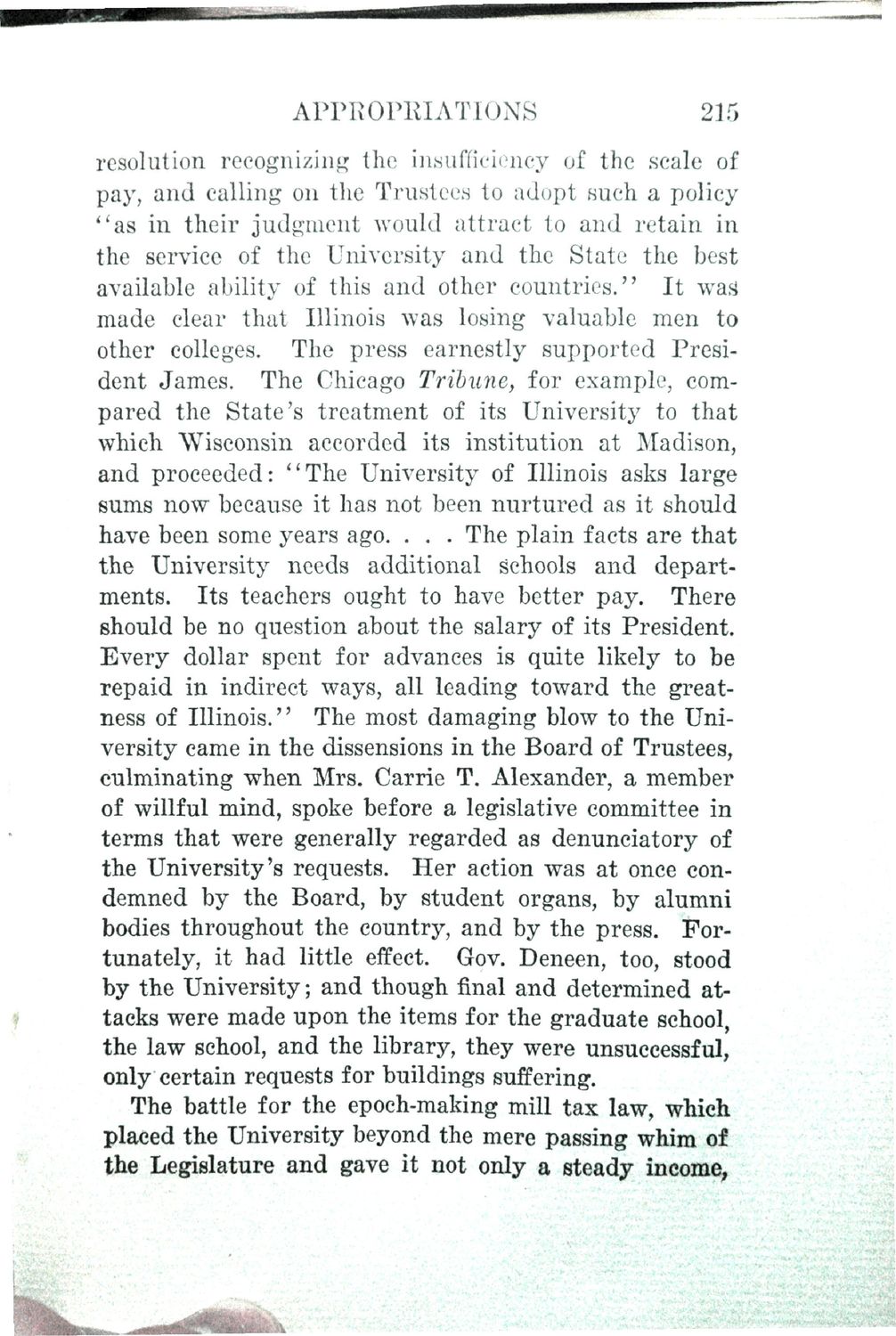| |
| |
Caption: Book - History of the University (Nevins)
This is a reduced-resolution page image for fast online browsing.

EXTRACTED TEXT FROM PAGE:
APPROPRIATIONS 215 resolution recognizing the insufficiency of the scale of pay, and calling on the Trustees to adopt such a policy "as in their judgment would attract to and retain in the service of the University and the State the best available ability of this and other countries." It was made clear that Illinois was losing valuable men to other colleges. The press earnestly supported President James. The Chicago Tribune, for example, compared the State's treatment of its University to that which "Wisconsin accorded its institution at Madison, and proceeded: "The University of Illinois asks large sums now because it has not been nurtured as it should have been some years ago. . . . The plain facts are that the University needs additional schools and departments. Its teachers ought to have better pay. There should be no question about the salary of its President. Every dollar spent for advances is quite likely to be repaid in indirect ways, all leading toward the greatness of Illinois." The most damaging blow to the University came in the dissensions in the Board of Trustees, culminating when Mrs. Carrie T. Alexander, a member of willful mind, spoke before a legislative committee in terms that were generally regarded as denunciatory of the University's requests. Her action was at once condemned by the Board, by student organs, by alumni bodies throughout the country, and by the press, fortunately, it had little effect. Gov. Deneen, too, stood by the University; and though final and determined attacks were made upon the items for the graduate school, the law school, and the library, they were unsuccessful, only certain requests for buildings suffering. The battle for the epoeh-making mill tax law, which placed the University beyond the mere passing whim of the Legislature and gave it not only a steady income.
| |